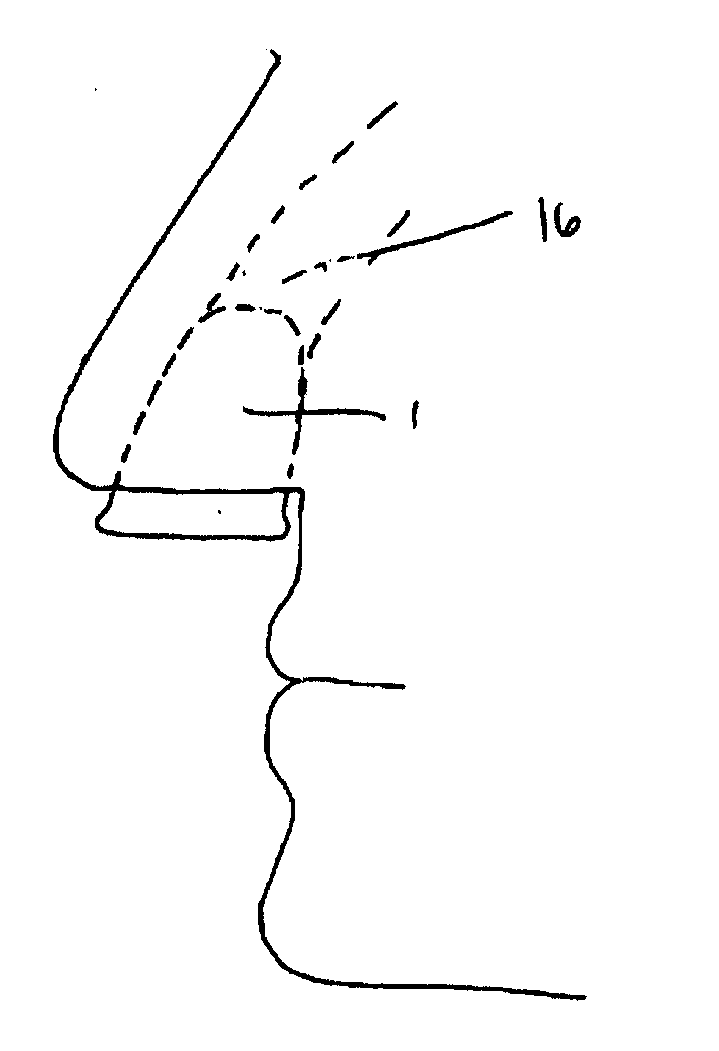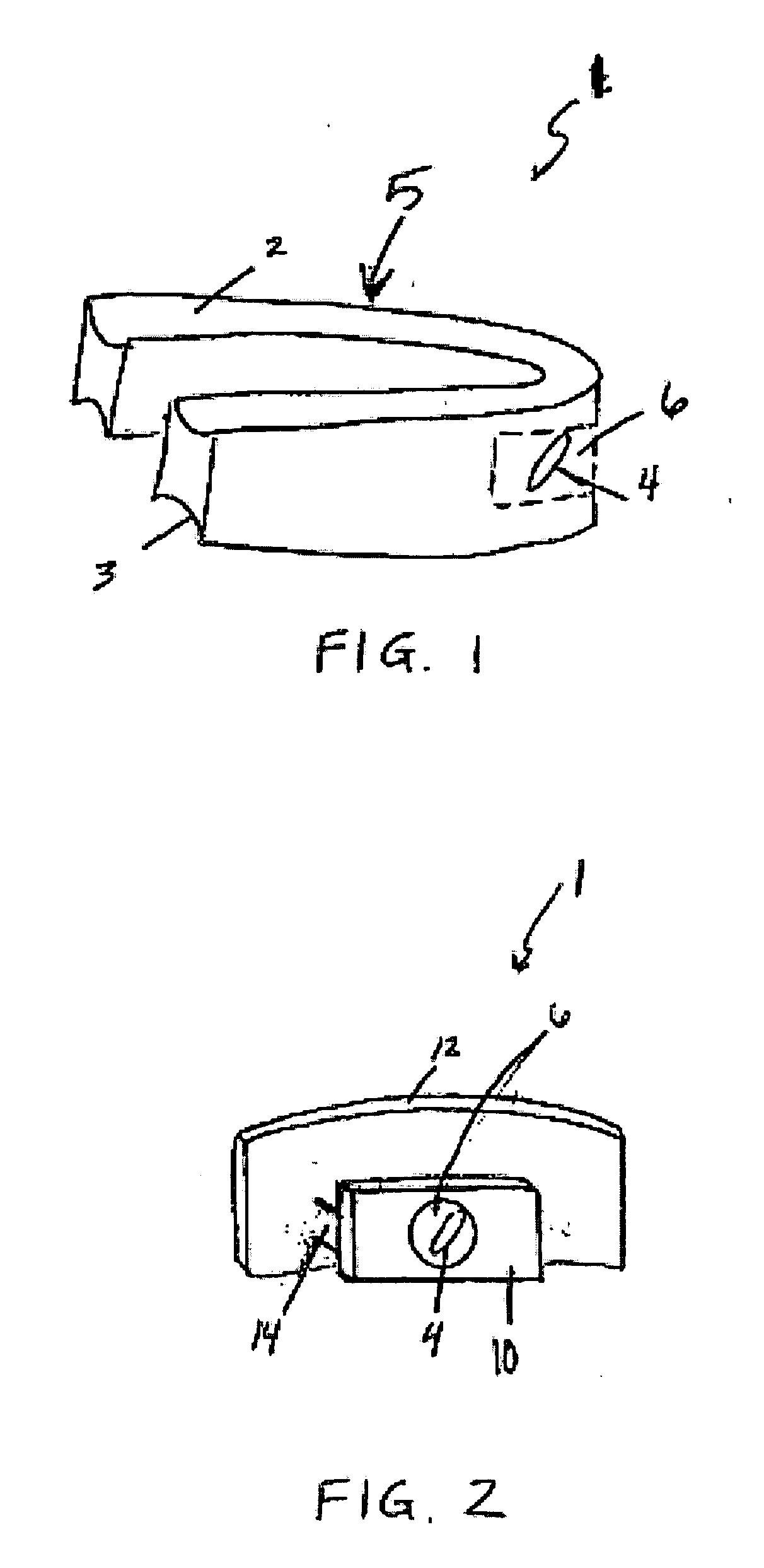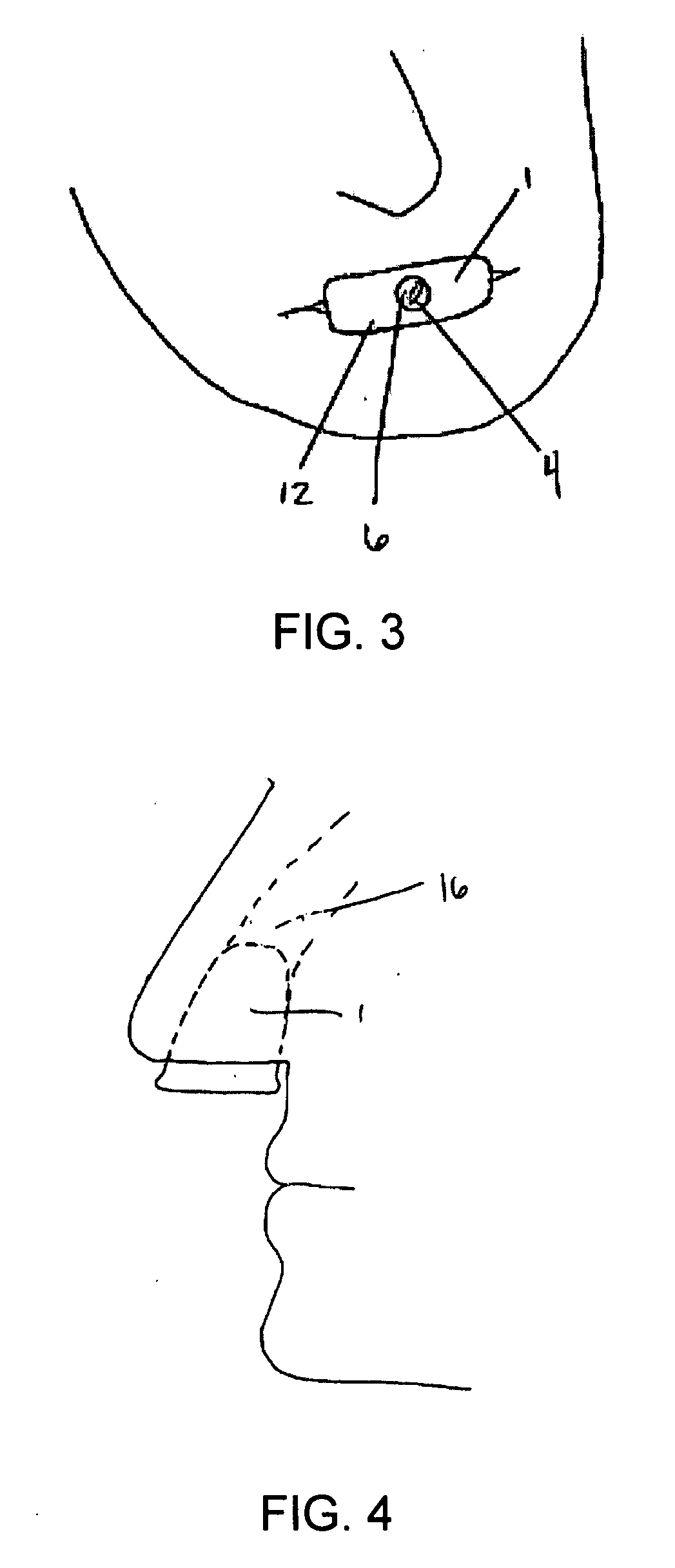Nasal respiratory devices
a technology of respiratory devices and nasal passages, which is applied in the direction of respirators, snoring prevention, treatment rooms, etc., can solve the problems of inability to adequately pump blood to the body including the lungs, exercise intolerance, fluid retention, etc., and achieve the effect of inhibiting nasal expiration and inhibiting nasal expiration
- Summary
- Abstract
- Description
- Claims
- Application Information
AI Technical Summary
Benefits of technology
Problems solved by technology
Method used
Image
Examples
Embodiment Construction
[0071] Respiratory devices, kits, and methods for their use in improving respiratory and cardiovascular function are described herein. In general, these respiratory devices are referred to as respiratory devices or simply as “devices.” The devices and methods described herein may be useful to treat a variety of medical disease states, and may also be useful for non-therapeutic purposes. The devices and methods described herein are not limited to the particular embodiments described. Variations of the particular embodiments may be made and still fall within the scope of the appended claims. It is also to be understood that the examples and particular embodiments described are not intended to be limiting. Instead, the scope of the present invention will be established by the appended claims.
[0072] As used in this specification, the singular forms “a,”“an,” and “the” include plural reference unless the context clearly dictates otherwise. Unless defined otherwise, all technical and sci...
PUM
 Login to View More
Login to View More Abstract
Description
Claims
Application Information
 Login to View More
Login to View More - R&D
- Intellectual Property
- Life Sciences
- Materials
- Tech Scout
- Unparalleled Data Quality
- Higher Quality Content
- 60% Fewer Hallucinations
Browse by: Latest US Patents, China's latest patents, Technical Efficacy Thesaurus, Application Domain, Technology Topic, Popular Technical Reports.
© 2025 PatSnap. All rights reserved.Legal|Privacy policy|Modern Slavery Act Transparency Statement|Sitemap|About US| Contact US: help@patsnap.com



